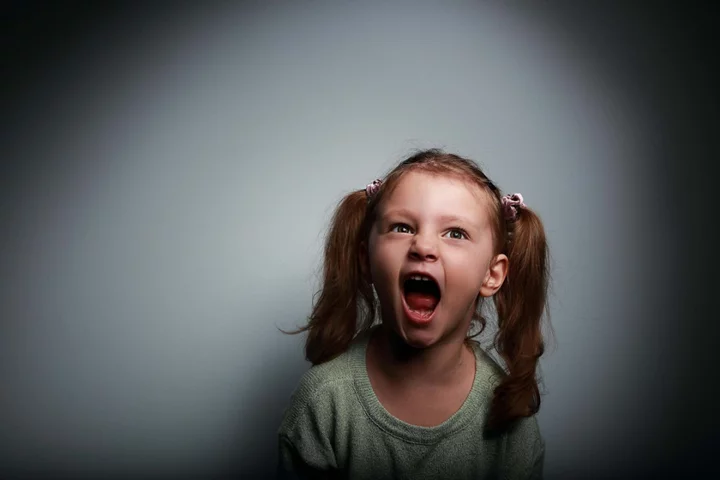
Does my child have ADHD or are they just a livewire?
ADHD awareness is on the rise – yet it can still sometimes be tricky for parents and carers to know whether their child is affected or not. It’s estimated that 5% of children in the UK have ADHD, according to the charity ADHD UK. And while the condition has previously been stereotypically associated with ‘disruptive’ and ‘naughty’ behaviour, particularly in young boys, it is now understood to be far more complex and nuanced than that. “Attention deficit hyperactivity disorder, or ADHD, is a neurodevelopmental condition that impacts someone’s attention, their levels of hyperactivity and impulsivity,” explains Dr Seb Thompson, consultant clinical psychologist at Cygnet Health Care. “Typically when someone has ADHD, they tend to struggle with their attention, with hyperactivity and with impulsivity – although it is possible to just struggle with symptoms from one of those,” Thompson adds. Of course, no child has ‘perfect’ concentration all the time, and many kids can have impulsive moments or bouts of being a bit hyperactive. So, how do you know if they’re actually showing signs of ADHD? To mark October’s ADHD Awareness Month, we talked to some experts… ADHD does not always look the same There are some common patterns that crop up with ADHD, however it can also affect individuals very differently. So, if another child has similar behavioural traits to yours and has had a diagnosis, that does not necessarily mean your child has ADHD too. At the same time, children could have very different behavioural traits, yet both have ADHD. “Every child with ADHD will probably struggle with a unique set of difficulties,” explains Georgia Chronaki, senior lecturer in developmental neuroscience at University of Central Lancashire. “[For example] One child might struggle with paying attention in class, another may struggle with managing their emotions.” They find being still and quiet really hard It may be a stereotype, but uncontrollable fidgeting could be an indicator of possible ADHD. Thompson explains: “The hyperactivity and impulsivity difficulties associated with ADHD could include being unable to sit still without fidgeting, excessive restlessness, finding the quiet to be uncomfortable, difficulty engaging in tasks quietly, difficulties in turn-taking, impulsively saying or doing things without thinking through consequences, as well as a tendency not to consider the risks of behaviour.”Your child is often forgetful and loses things easilyThompson says if they are “frequently misplacing or losing items, being easily distracted, appearing to be daydreaming, and having difficulties remembering to do tasks and difficulties following through with instructions”, it may be linked with ADHD. You can tell your child is struggling If your child seems to be finding things a struggle, this could be a big indicator. “Imagine really wanting to pay attention to a conversation that is happening but your brain is not letting you,” says Thompson. “Imagine really wanting to focus on your homework, but your brain is not letting you. Imagine really wanting to sit and watch a TV programme, or sit and eat a meal, or sit and relax and your brain is not letting you. “The world can be a very frustrating place for young people with ADHD, particularly if they do not understand why their brain works in the way it does.” They seem down or depressed Thompson adds that kids with ADHD “can often suffer with low self-esteem, depression and anxiety”. He explains: “Young people who get frustrated by their difficulties may stop trying at school, or lose interest in their hobbies because they can’t sustain the attention to take part.” Seeking advice If any of these things are impacting your child’s wellbeing and making things seem hard for them, or if you are concerned they may have ADHD, then it may be worth seeking professional support. Diagnoses are typically given by specialist ADHD assessment teams, and referrals tend to be made via schools or Child and Adolescent Mental Health Services (CAMHS). Read More Charity boss speaks out over ‘traumatic’ encounter with royal aide Ukraine war’s heaviest fight rages in east - follow live Naomi Campbell on the catwalk at Sarah Burton’s final Alexander McQueen show This is how your make-up needs change as you age Victorian dahlia show recreated at Stonehenge with thousands of flowers
1970-01-01 08:00

Golden Week: Budget travel takes off in China
A sluggish economy forces young Chinese to travel cheap for this year's holiday.
1970-01-01 08:00

Senegal's navy intercepts boats carrying 600 would-be migrants
They were attempting the treacherous crossing to Spain's Canary Islands - a gateway to Europe.
1970-01-01 08:00
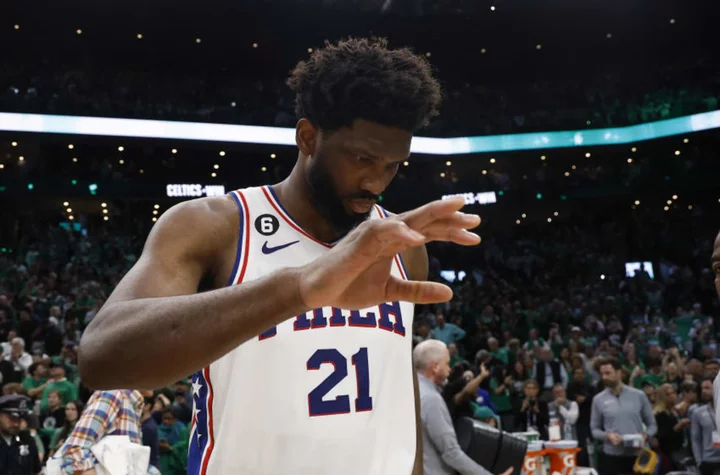
How fun! Joel Embiid despairs over worst possible 76ers offseason
Joel Embiid and the Philadelphia 76ers are in a tough position after the Boston Celtics' trade for Jrue Holiday.
1970-01-01 08:00
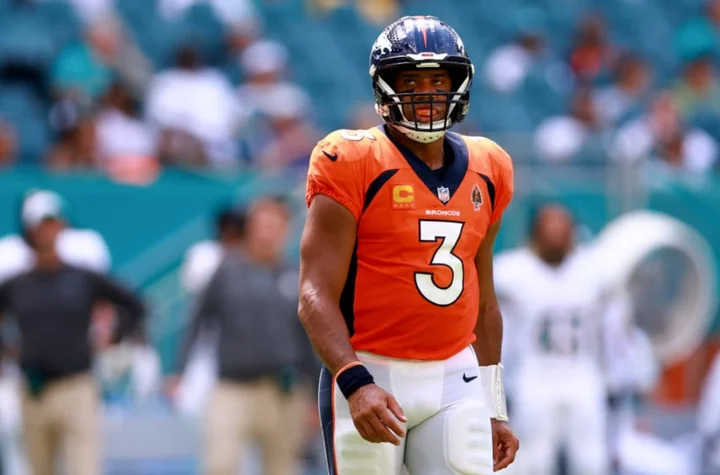
NFL rumors: Russell Wilson replacement scouting, Vikings firm on Cousins trade, Von Miller update
Von Miller expected to return to Bills soon Great news for the Buffalo Bills: Adam Schefter reports that defensive end Von Miller will return to practice this w
1970-01-01 08:00
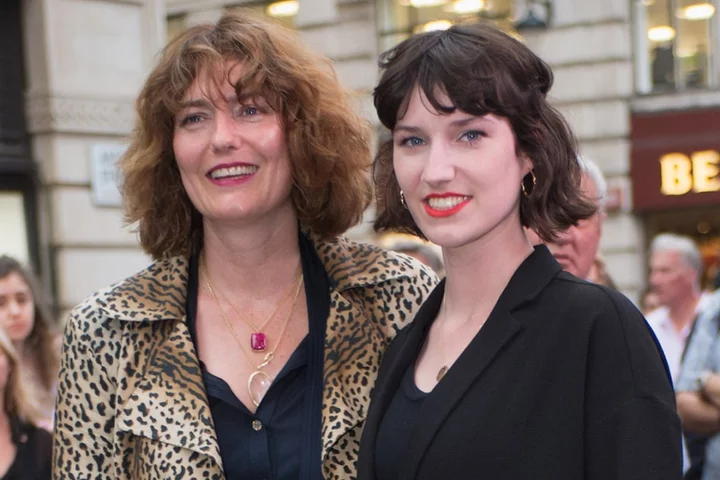
The Split star Anna Chancellor announces the death of artist daughter Poppy, aged 36
The Split and Four Weddings and a Funeral star Anna Chancellor has announced the death of her only daughter, Poppy, aged 36. On Saturday (30 September), the actor shared the sad news that Poppy had died from leukaemia on Friday (29 September) on her daughter’s Instagram page. “To all you wonderful and most-loved friends of Poppy. We send you this message with our deepest love,” the heartfelt statement began. “On September 29 Poppy died, held tight by her immediate family just as she had wished. “Despite every effort, her body could not continue any longer. We will be forever grateful to her kind and loving care team at the Royal Marsden. So we, her family and friends who all adore her join the other families who have lost loved ones far too young.” The message added that her family would continue to support her “soul’s journey”, before continuing: “Poppy was and is an unbelievable life force of creativity, compassion, wit, beauty and sheer uniqueness. She transformed our lives, and we are beyond grateful.” Poppy was born in 1988 to Chancellor and the poet Jock Scot. She was an illustrator and artist who had worked for brands such as Adidas and Cath Kidston. According to the Daily Mail, King Charles is rumoured to own one of Poppy’s artworks, given to him as a thank-you after she attended an artists’ residence at his stately home, Dumfries House, in Ayrshire. In May, Poppy spoke to the publication ahead of undergoing chemotherapy. She said: “I am terrified and physically exhausted – at the same time as learning to talk to my body and cells with loving defiance.” Poppy had been keeping her social media followers updated on her health. As well as sharing videos of herself dancing, which she dubbed “the best medicine”, Poppy recently posted an image of herself in a hospital bed after a stem cell transplant in August. Anna Chancellor has acted on screen since 1990, beginning with a role in the soap opera Jupiter Moon. In the Nineties, Chancellor was known for playing barrister Julia Piper in the legal drama series Kavanagh QC as well as playing Caroline Bingley in the 1995 BBC adaptation of Pride and Prejudice. Other recognisable roles include Henrietta “Duckface” in Four Weddings and a Funeral, Lady Anstruther on Downton Abbey, and Melanie Aickman in seasons two and three of the BBC family law drama The Split. Poppy was Chancellor’s only child. Read More Billy Connolly says ‘cruel’ Parkinson’s disease has made it difficult to walk Fred Sirieix shares details of medical procedures to ‘investigate’ recent blood tests David Beckham explains why he never sought therapy after 1998 World Cup match left him ‘depressed’ Billy Connolly says ‘cruel’ Parkinson’s disease has made it difficult to walk Fred Sirieix shares details of medical procedures to ‘investigate’ recent blood tests David Beckham explains why he never sought therapy after 1998 England match
1970-01-01 08:00

The 'chainsaw' candidate challenging Argentina's left and right
Carried by a wave of shouting supporters and wielding a chainsaw at the open sky, the man of the hour approached center stage.
1970-01-01 08:00

Projected Los Angeles Dodgers rotation for the 2023 postseason
The Dodgers postseason rotation is in one of the most interesting and complicated spots this October.
1970-01-01 08:00
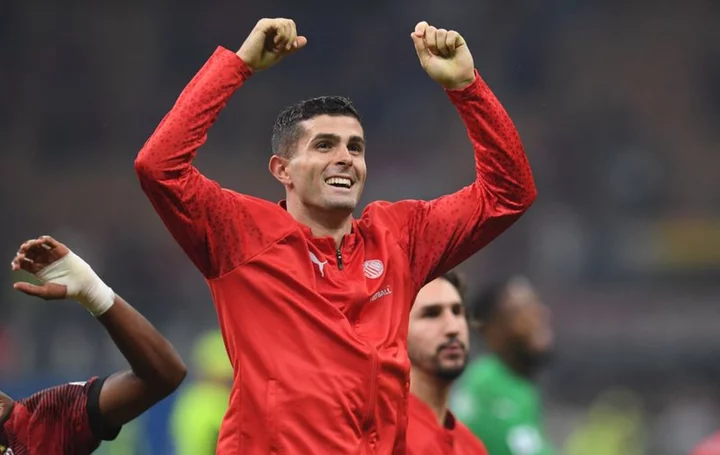
Soccer-Superb Leao helps Milan go top of Serie A with win over Lazio
MILAN (Reuters) -Christian Pulisic and Noah Okafor put AC Milan provisionally top of Serie A on Saturday, with their second-half
1970-01-01 08:00
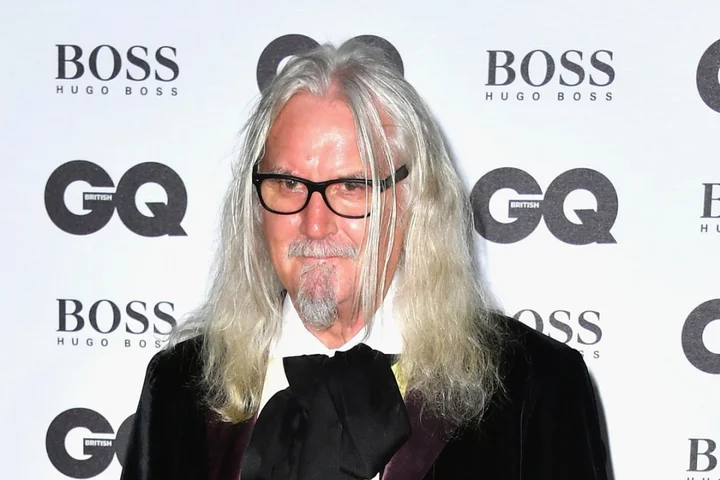
Billy Connolly says ‘cruel’ Parkinson’s disease has made it difficult to walk
Billy Connolly has shared updates on how Parkinson’s disease has had a greater effect on his physical abilities over time. The actor and comedian, 80, was diagnosed with Parkinson’s disease in 2013 and retired from his stand-up career in 2018 due to the illness. Parkinson’s is a brain disorder that causes unintended or uncontrollable movements, such as shaking, stiffness, and difficulty with balance and coordination. Often, the disease gets more severe over time. In an interview conducted by Connolly’s wife, the writer and psychologist Pamela Stephenson Connolly, the comedy figure gave insight into how his Parkinson’s disease has had a greater effect on his physical abilities. “It’s very difficult to see the progression exactly, because a lot of things come and go,” he began in the Guardian profile, published on Saturday (30 September). “Recently I’ve noticed a deterioration in my balance. That was never such a problem before, but in the last year that has come and it has stayed. For some reason, I thought it would go away, because a lot of symptoms have come and gone away… just to defy the symptom spotters.” He added that the shaking had reappeared, as well as “the inability to get out of certain types of chairs”. Stephenson added that balance had been the most significant factor to affect the star’s health, and had resulted in “a couple of serious falls”. “It’s funny, that fall I had when I landed on my jaw reminded me of a thing I used to do on stage,” Connolly replied. “I used to say: “I fell out of bed, but luckily my face broke my fall…” “It wasn’t so funny when you broke your hip,” Stephenson said in response. The What We Did on Our Holiday star noted that his declining ability to control his body movements is one factor “added to the list of things that hold me back”. “I feel like I want to go for a walk, but I go for 50 yards and I want to go home, because I’m tired. I’m being encroached upon by this disease. It’s creeping up behind me and stopping me doing things. It’s a cruel disease.” Elsewhere in the interview, the couple discussed the changes to their relationship as a result of his changing health. Connolly praised Stephenson for her ability to care for him. “It’s lovely. I found a new you. I found a new Pamela. And it’s worked out great. I never thought that you’d be able to look after me the way you do. “I thought it would annoy you terribly,” he continued. “You were such an independent “look after yourself” kind of person. But you’ve rallied round to looking after me. And it suits you great. And it sure suits me lovely.” Read More Lorraine Kelly shares the career advice she got from Billy Connolly Fred Sirieix shares details of medical procedures to ‘investigate’ recent blood tests David Beckham explains why he never sought therapy after 1998 World Cup match left him ‘depressed’ Fred Sirieix shares details of medical procedures to ‘investigate’ recent blood tests David Beckham explains why he never sought therapy after 1998 England match Climbing 5 flights of stairs a day could cut risk of heart disease, study suggests
1970-01-01 08:00

The US is warning of a big build-up of Serbian troops on the Kosovo border. Here's why tensions are high
The long fractious ties between Kosovo and Serbia are once again on edge after one of the worst outbreaks of violence in years.
1970-01-01 08:00
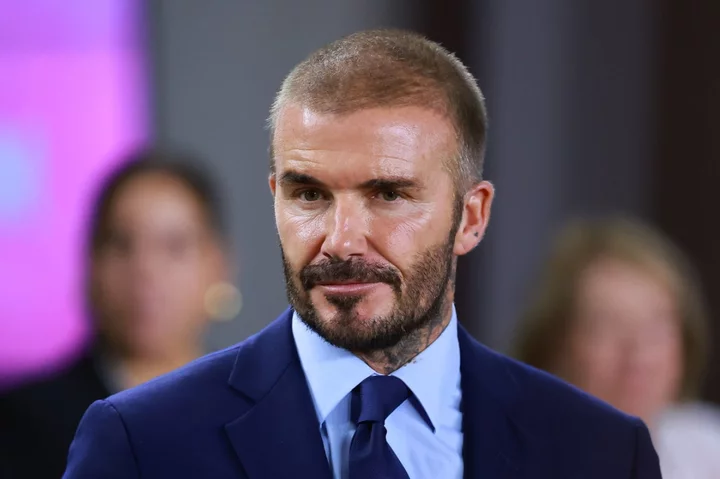
David Beckham explains why he never sought therapy after 1998 World Cup match left him ‘depressed’
David Beckham has explained why he never sought out therapy despite suffering from depression after his expulsion from an England game in 1998. The former Manchester United and Real Madrid footballer is one of the sport’s biggest-ever stars and is considered a national treasure to many. In 1998, however, Beckham was subject to widespread criticism after he received a red card during England’s World Cup match against Argentina. Beckham’s exit from the pitch was considered a major reason for the team losing the game and getting eliminated from the tournament. The footballer was met with a huge amount of public disdain, which included an effigy of him being hung outside a pub. The incident is covered in the athlete’s forthcoming Netflix documentary, Beckham, and includes his wife Victoria Beckham stating her belief that David was suffering from depression as a result of the public reaction. In a new interview with The Telegraph, Beckham agreed that he was depressed at the time, explaining that he did not feel as though he could acknowledge his mental health struggles openly. “It’s something I would never admit, because I was brought up by a dad who, if I said, ‘Dad, I’m feeling a bit low today,’ he’d have said, ‘Boy, get on with it,’” he said. “But I was [depressed]. I wasn’t eating, I wasn’t sleeping. I was living day to day thinking about what was coming next. People were saying I should leave the country. It was tough.” Beckham went on to say that he didn’t seek therapy at the time – and hasn’t sought it out in the years that followed – mostly due to his East End upbringing. “People have mentioned it, and I think therapy is a good idea – in this day and age you hear more about sports stars going to have therapy, and how much it helps. “But I was brought up in the East End of London. If I’d said to my dad, ‘I need therapy’, he’d have said, ‘What for?!’ So I put my head down and worked harder.” Beckham has been an advocate for mental health for many years. He first spoke out about his struggles with obsessive-compulsive disorder (OCD), a condition that causes a person to have obsessive thoughts and/or compulsive behaviours, in 2006. He speaks candidly about the condition in his documentary. In one scene, Beckham explains that he will spend hours tidying after his family go to bed. “I clean it so well, I’m not sure it’s actually appreciated so much by my wife, in all honesty,” he says. “The fact that when everyone’s in bed I then go around, clean the candles, turn the lights on to the right setting, make sure everywhere is tidy. I hate coming down in the morning and there’s cups and plates and, you know, bowls.” Beckham will be available on Netflix from Wednesday 4 October. Read More David Beckham shares secret to successful 24-year marriage to Victoria Beckham David Beckham kisses daughter Harper on the lips after previously defending displays of affection Victoria Beckham refutes claims she ‘stalked’ David Beckham before they met David Beckham shares secret to successful 24-year marriage to Victoria Beckham David Beckham kisses daughter on the lips after defending displays of affection Why are there no good celebrity couples anymore?
1970-01-01 08:00
